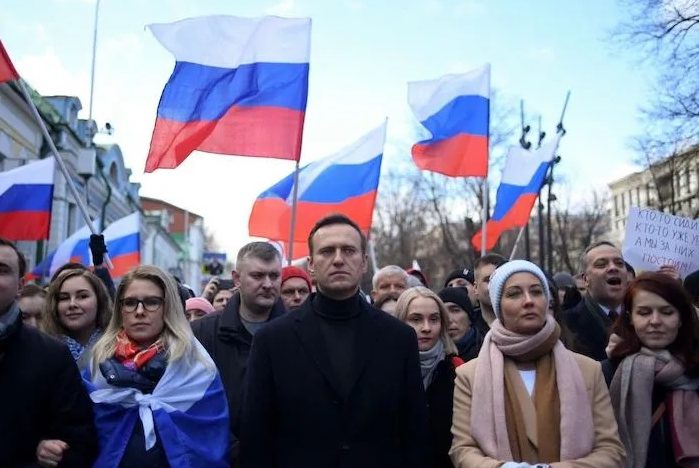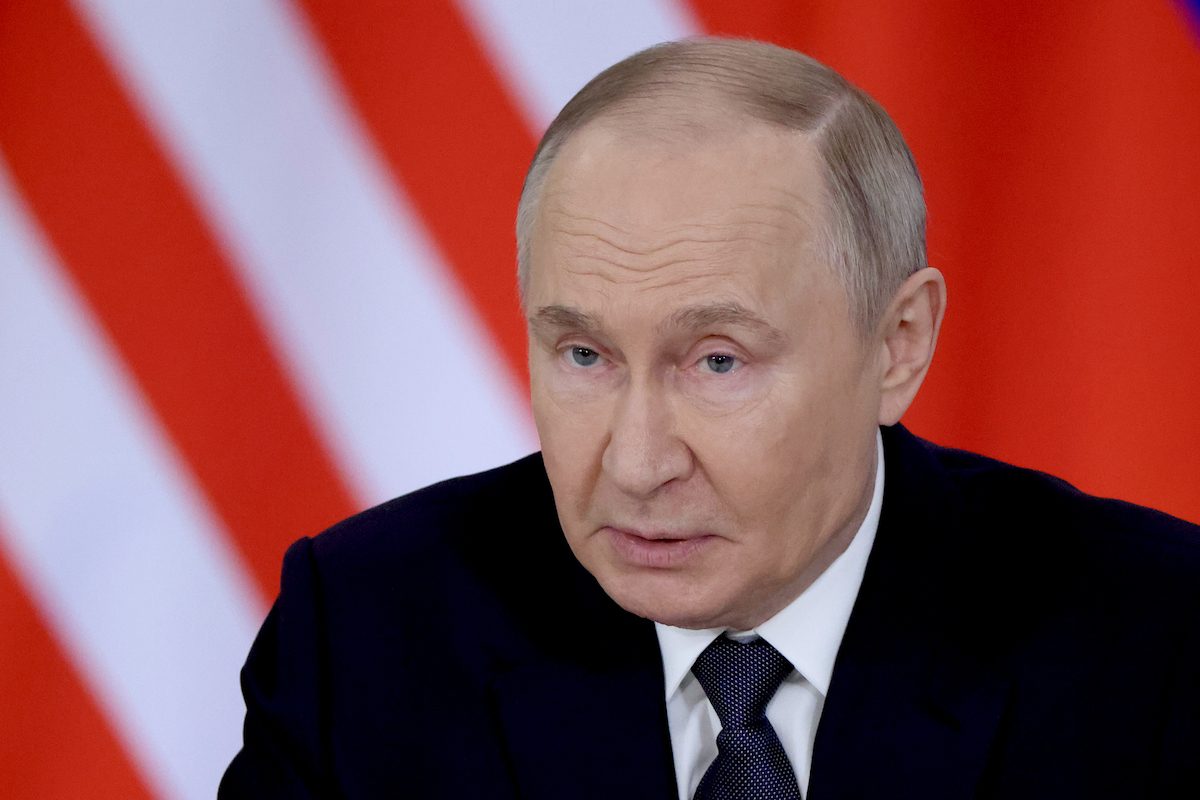I knew and greatly respected Alexei Navalny. The news (as yet not independently confirmed) that he died in prison came today as a physical blow — sickening, but at the same time tragically unsurprising. Navalny’s passion, his intelligence and his refusal to make compromises with the Putin regime made him a colossus in a world of opposition politicians filled with moral pygmies. The Soviet Communist Party once claimed to be the “intelligence, the honor and the conscience” of the Russian people. But that title properly belongs to Navalny, whose life and career were living proof that Putin had not yet entirely extinguished Russians’ spirit of freedom and defiance, even in the face of terrifying odds.
Navalny’s life and career were living proof that Putin had not yet entirely extinguished Russians’ spirit of freedom and defiance
Navalny’s bravery and chutzpah were his trademarks. Even as the window for opposition tolerated by the Kremlin dwindled, Navalny inspired thousands of volunteers across Russia to document corruption, waste and abuse by the ruling United Russia Party — an organization he dubbed “the party of Thieves and Crooks.”
As late as the summer of 2020 Navalny was traveling around Siberia promoting a campaign of “smart voting” that united all opposition votes behind specific candidates and gave them a real chance of winning regional council seats. Russia’s Federal Security Service put paid to that idea by poisoning Navalny with a nerve agent in Tomsk in August 2020, an assassination attempt he survived only thanks to quick action on the part of local medics. After an international outcry the Kremlin allowed him to be medevaced to Berlin’s Charité Hospital, where then-Chancellor Angela Merkel visited him several times. But Putin’s assassins failed to dent Navalny’s legendary chutzpah. As brilliantly documented in the Oscar-winning documentary Navalny, he and a team of open source intelligence investigators from Bellingcat tracked down not only the identities but even the phone numbers of his would-be killers. Impersonating a senior FSB official, Navalny called them up and, amazingly, persuaded one of them to discuss the exact details of how the poison had been applied to his underpants in a hotel wardrobe.
But it was exactly that chutzpah that killed him in the end. After recovering from the poisoning Navalny insisted on returning to Russia. His team publicly deny that there were any private debates about the wisdom of this move — but off the record it’s clear that several of them attempted passionately to dissuade him. As is clear from the documentary, Navalny took a calculated risk that the Kremlin wouldn’t dare to imprison him. He was very wrong.
One is not meant to speak ill of the dead. But for what it’s worth I believe that Navalny was wrong to return. Instead of leading Russia’s anti-Putin movement from abroad, Navalny’s imprisonment and subsequent tortuous incarceration served only to underscore the helplessness of Russia’s opposition and the power of the state.
Many of his supporters argue that by remaining in exile Navalny would have lost ordinary Russians’ respect, and that he would have declined into irrelevance. I disagree. Exiled Belarusian opposition leader Sviatlana Tsikhanouskaya, who left Minsk around the time of Navalny’s poisoning, now lives in Vilnius and heads an opposition council recognized by Lithuania as the legitimate government of her country. She gives regular addresses to the European Parliament, meets heads of state and organizes practical support for opposition inside and outside Belarus. Navalny’s decision to return into the belly of the beast in January 2021, by contrast, allowed Putin’s regime to decapitate his own movement and rob Russians of their best and brightest hope for the future.
The last video of Navalny — filmed just two days before his death as he joined a court hearing by video link — is heartbreaking. Navalny looked gaunt with his hands handcuffed behind his back, but his trademark good cheer and charm were intact. He jokingly suggested sending his bank details so that the judge could give him some money “from Your Honor’s enormous pay as a regional judge, as I’m running out of cash.” The joke was a wry comment on the notoriously tiny pay in the Russian judicial system, and both the prosecutor and the young judge laughed good-naturedly along with Navalny as they packed up their papers. Forty-eight hours later, the authorities of the notorious Arctic Wolf penal colony announced that he had been taken ill during a walk and collapsed with an apparent blood clot. We may never know the truth — but Navalny did recently report being attacked by guards, and prison authorities had earlier refused him treatment for a chronic back condition. Whatever really happened, we can be sure that the prison service will bury the facts deep.
If anything, Navalny was much more valuable to the Kremlin alive. Now he has become a martyr
The Russian internet is already filling with conspiracy theories about why the Kremlin chose this moment to assassinate Navalny. But politically, there’s no obvious motive for Putin to order the murder of his imprisoned critic. If anything, Navalny was much more valuable to the Kremlin alive, a grim reminder of the extreme vindictive ruthlessness of the regime and a living warning to others. Now he has become a martyr.
Not that Navalny, dead or alive, was by the end any kind of threat to the regime. His imprisonment definitively neutralized him as a gadfly and practical campaigner. After his arrest Navalny’s political network inside Russia was utterly razed. His closest allies fled into exile, along with an estimated one million anti-Putin Russians. And though his team continue to release videos on the corruption of Putin’s cronies — including one on Putin’s Palace on the Black Sea which was viewed 130 million times on YouTube — that was no substitute for the energy, the inspiration and the leadership of the man himself.
Many hope that Navalny’s death will trigger a wave of outrage and anger that will spur Russians to take to the streets in protest and topple the murderous Putin regime. Alas, that is a vain hope — not least because so many of the young, Western-minded and educated Russians who might have spearheaded such protests are in exile or in jail. The greatest tragedy of Navalny’s life and career is that he was killed — if not directly then certainly indirectly — at the darkest, bleakest, most hopeless hour of the Putin regime. Perhaps one day we will live to see a monument raised to Navalny in Moscow. But that day so far remains invisibly distant.
This article was originally published on The Spectator’s UK website.


























Leave a Reply